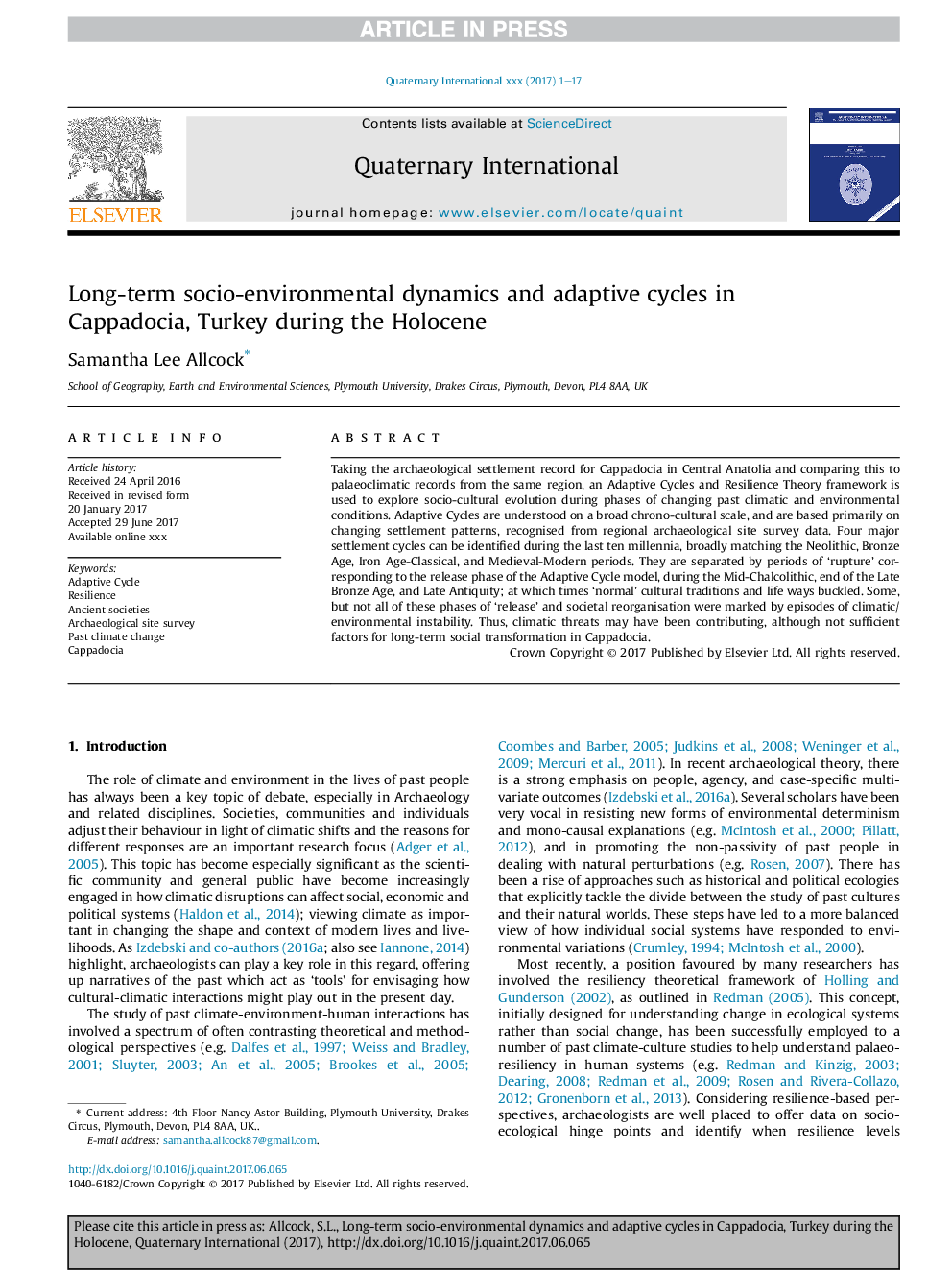| Article ID | Journal | Published Year | Pages | File Type |
|---|---|---|---|---|
| 5113067 | Quaternary International | 2017 | 17 Pages |
Abstract
Taking the archaeological settlement record for Cappadocia in Central Anatolia and comparing this to palaeoclimatic records from the same region, an Adaptive Cycles and Resilience Theory framework is used to explore socio-cultural evolution during phases of changing past climatic and environmental conditions. Adaptive Cycles are understood on a broad chrono-cultural scale, and are based primarily on changing settlement patterns, recognised from regional archaeological site survey data. Four major settlement cycles can be identified during the last ten millennia, broadly matching the Neolithic, Bronze Age, Iron Age-Classical, and Medieval-Modern periods. They are separated by periods of 'rupture' corresponding to the release phase of the Adaptive Cycle model, during the Mid-Chalcolithic, end of the Late Bronze Age, and Late Antiquity; at which times 'normal' cultural traditions and life ways buckled. Some, but not all of these phases of 'release' and societal reorganisation were marked by episodes of climatic/environmental instability. Thus, climatic threats may have been contributing, although not sufficient factors for long-term social transformation in Cappadocia.
Keywords
Related Topics
Physical Sciences and Engineering
Earth and Planetary Sciences
Geology
Authors
Samantha Lee Allcock,
